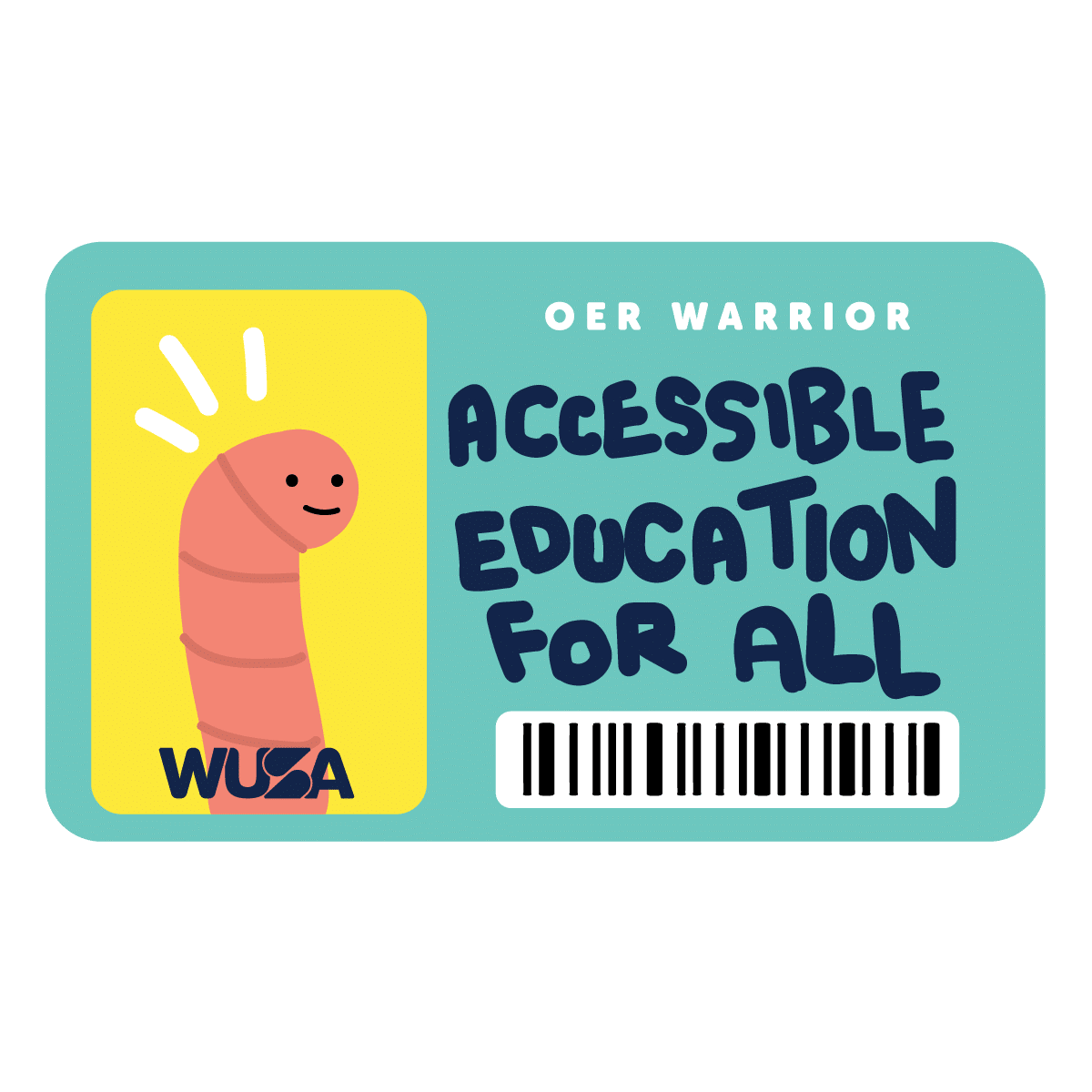What are Open Education Resources (OER)?

By Jansher Saeed, Student Advocacy Support
This year, Open Education (OE) Week takes place March 4-8th with on-campus programming highlighting faculty OE projects and resources.
Open Education Resources (OER) are learning, teaching, and research materials available in any format or medium that reside in the public domain and are permitted for use free of charge. These resources can be repurposed, customised, adapted and redistributed by others while maintaining creative commons licensing. OERs can be a great alternative to traditional and costly textbooks, alleviating several affordability and accessibility barriers for students’ access to education.
These resources can take various forms including lecture notes, specific course content, audio and video, tutorials, textbooks, extended reality such as AI simulations, software, websites, and games – all available to use free of charge.
Students may have encountered OER in previous courses as several UW faculty members have developed their own OER projects tailored to courses they teach. Political Science professor Dr. Cattapan, in collaboration with students, has designed the Welcome to Canadian Politics OER – a site designed to provide clear and accessible information on the Canadian political system. Barbara Forest, one of the first UW instructors involved in the process of offering online courses, has designed OER course notes and lectures for MATH 137 and 138. Sociology professor Dr. Aurini is currently designing a free to use Introduction to Sociology textbook offered via eCampus online.
Anyone is able to produce and share their own OER through softwares and platforms such as eCampus Ontario and OER Commons. Effective OER are developed based on the following 5 R’s of openness:
- Retain – the ability to own your own copy of the resource(s)
- Revise – edit, adapt and modify your copy of the resource
- Remix – combine the original resource with other materials
- Reuse – use and share your copy of the resource publicly
- Redistribute – share the original or your own revised or remixed copy free of charge
Additionally, it is important to note that many OER undergo a rigorous peer review process.
Why should students advocate for OER?
Cost
Since 1977, textbook prices in Canada have increased over 1000%, leading students to spend between $800 and $1000 a year on textbooks. OER are a cost-effective alternative to traditional textbook-oriented courses.
Improved Learning Experience
Student performance in courses that implement OER are generally more favourable compared to courses that rely on traditional textbook content. Students tend to have better grades, lower failure rates, and lower withdrawal rates. OER can also be tailored to meet the specific needs and interests of students and courses, making for an engaging and unique learning experience.
Accessibility
OER are often more accessible for students with learning disabilities or visual impairments. OER can be adapted to include accessible fonts, audio playback, and can be made available in various file formats.
Inclusivity and Diversity
OER are recognized to broaden research visibility, bring greater transparency to research processes, minimise research duplication, and accelerate further research. Through OER, content can be customised to bring forward a diverse range of voices, research, and epistemologies, allowing for a much more holistic and inclusive student learning experience.
OER Advocacy Resources
- OER Student Toolkit – Created by Bcampus to help students advocate for greater OER adoption on campus.
- OER Commons Student Advocate Toolkit – Created by students, this toolkit aims to help students get involved in OER advocacy.
- The Learning Portal OER Advocacy – Created by College Libraries Ontario, this toolkit helps both faculty and students communicate the value of OER on teaching and learning.
- OERI Student Impact Toolkit – A guide to share the impact of OER with faculty by using student surveys & videos.
- Student Governance Toolkit – A guide provided by the Open Textbook Alliance for students to advocated for their college or university to create an open textbooks program.
- Student Impact Stories – Several first-hand accounts of students who have used and benefited from OERs.
OER Repositories and Additional Resources
- UWSpace – The University of Waterloo’s repository for research produced by faculty, students and staff.
- eCampus Ontario – Pressbooks and H5P for educators who want to create and upload OER.
- Open Textbook Library – Well-known OER repository supported by the Open Education Network.
- BC Open Collection – British Columbia’s highly-esteemed and large collection of OER repositories.
- Merlot – Well-known OER repository with a thorough peer-review process.
- OER Commons – Resource for building and publishing OER resources.
References
Cuttler, C. (2019). Students’ Use and Percep tions of the Relevance and Quality of Open Textbooks Compared to Traditional Textbooks in Online and Traditional Classroom Environments. Psychology Learning & Teaching, 18(1), 65-83. Retrieved from https://doi.org/10.1177/1475725718811300
Ontario Council of University Libraries (OCUL). (2017). Open educational resources white paper. Retrieved from https://www.ocul.on.ca/sites/default/files/2017-11-17%20no.%2002.12.01.%20OER%20white%20paper%20for%20Directors%20Nov%202017.pdf
Rix, J. (2019). Educational materials beyond textbooks: Learning in the 21st Century. CASA. Retrieved from https://d3n8a8pro7vhmx.cloudfront.net/casaacae/pages/2887/attachments/original/1547493199/Educational-Materials.pdf?1547493199
UNESCO. (2019). Recommendation on Open Educational Resources (OER). Retrieved from https://www.unesco.org/en/legal-affairs/recommendation-open-educational-resources-oer
Wiley, D. (n.d.) “Defining the “Open” in Open Content and Open Educational Resources.” Creative Commons Attribution 4.0 licence, retrieved February 27, 2023, from http://opencontent.org/definition/
York University. (2018, February 15). A primer on Open Education, its history and benefits – YFile. YFile. Retrieved February 25, 2024, from https://yfile.news.yorku.ca/2018/02/15/a-primer-on-open-education-its-history-and-benefits/
Published: Friday, March 1, 2024
